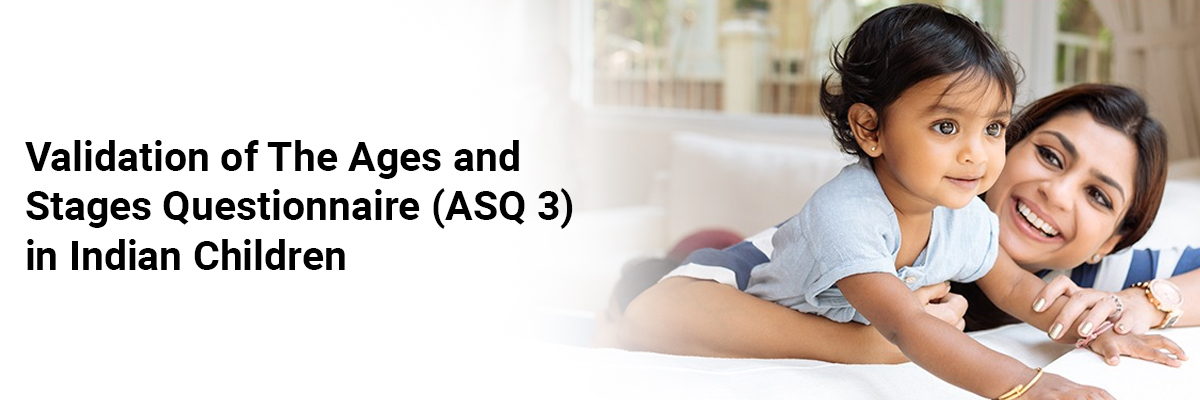
 IJCP Editorial Team
IJCP Editorial Team
Validation of the Ages and Stages Questionnaire (ASQ 3) in Indian Children
The goal of a recent study was to culturally adapt and validate a Hindi version of the Ages and Stages Questionnaire (ASQ-3) – for Indian children aged 2-24 months.
This was a cross-sectional study conducted from 2017-19 at a tertiary care center. The research involved "at-risk" children with developmental delays. The adaptation process included interaction with 37 subject experts, followed by validation. After piloting in 20 children, the modified ASQ-3 was validated in 568 at-risk children across four age groups. The validation was compared against the Development Assessment Scale for Indian Infants (DASII).
Out of 654 screened children, 568 were enrolled, with 420 identified with developmental delay on DASII. The Hindi adaptation of ASQ-3 demonstrated a sensitivity of 95.9%, specificity of 81.7%, positive predictive value (PPV) of 94.6%, and negative predictive value (NPV) of 85.6% for detecting developmental delay. For motor delay, the sensitivity was 96.1%, specificity 92.4%, PPV 97.7%, and NPV 87.7%. For mental delay, sensitivity was 95.5%, specificity 95.3%, PPV 98.6%, and NPV 85.9%.
From the findings, it was inferred that the Hindi adaptation of ASQ-3 is a reliable screening tool for neurodevelopmental delay in at-risk children aged 2-24 months. Further studies should aim at validating translations into various regional languages with larger community-based samples.
Source: Gulati S, Israni A, Squires J, Singh A, Madaan P, Kamila G, Pandey RM.Indian Pediatrics. 2023 Nov;60(11):908-12.

IJCP Editorial Team
Comprising seasoned professionals and experts from the medical field, the IJCP editorial team is dedicated to delivering timely and accurate content and thriving to provide attention-grabbing information for the readers. What sets them apart are their diverse expertise, spanning academia, research, and clinical practice, and their dedication to upholding the highest standards of quality and integrity. With a wealth of experience and a commitment to excellence, the IJCP editorial team strives to provide valuable perspectives, the latest trends, and in-depth analyses across various medical domains, all in a way that keeps you interested and engaged.





















Please login to comment on this article